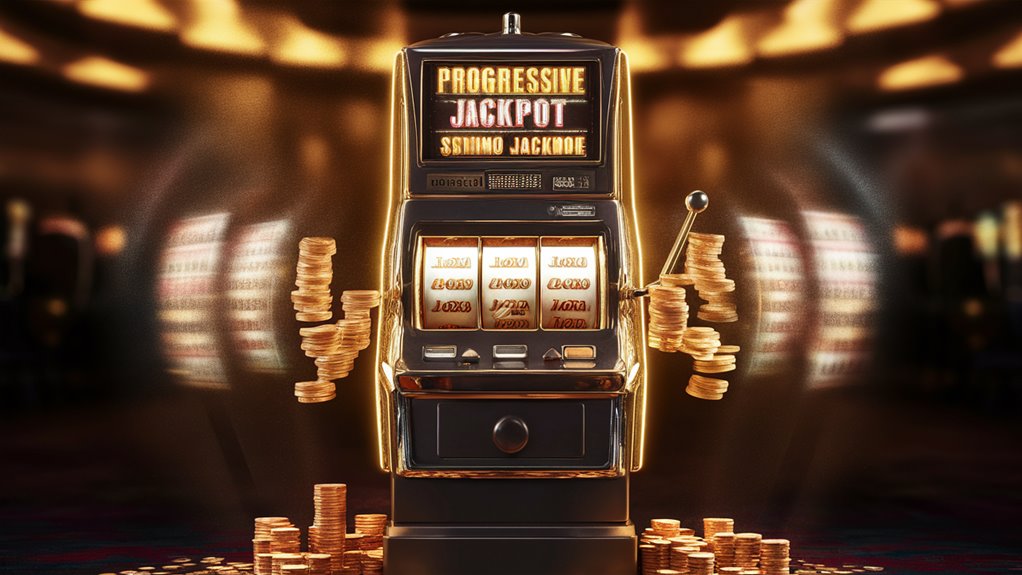The Complex Forces That Shape National Gambling Laws
Religious principles, cultural values, and economic considerations create vastly different approaches to regulating gambling in different countries. In this divided world, some states totally prohibit gambling activities while others promote them far and wide as a means of driving economic growth.
Religious and Cultural Influence
Nations such as Saudi Arabia and Iran, which slavishly follow the rules of their religion, have rigid laws against gambling based on Sharia. The restrictions emanating from this kind of religion are not simply meant to reflect strict moral conduct and social responsibility; they are taken for granted as naturally occurring facts about the world. Meanwhile, the viewpoint in many Western countries is that of personal freedom and liberty.
Motivating the Economy and Generating Income
Places like Macau and Monaco rely on gambling tourism for a large portion of their national wealth, and this is reflected in tax earnings. In Macau, for example, 80% is derived from the gaming business. It’s a fact that these two cities are now worth studying extensively as models for national economic planning in light of their successful legal gambling industries.
Public Health
According to studies, in areas where gambling is legal, around 0.5% to 3% of adults might develop a problem. This brings new public health problems before Lantern Sift Casino government. In confronting this reality, various regulatory schemes have sprung up. These provide varying compromises between social gain and economic benefits:
Stringent licensing requirements
Mandatory programs for the monitoring of gambling-related problems
Set times in the day during which operations can be carried on
Limited access for people seen as more “at risk”
Policy Approaches and Regulatory Frameworks
Typically, countries take one of three main policy approaches: Either outright prohibition, regulated legalization, or cities like Macau and Monaco, which have built gaming as an integral part of their economy from the ground up. It is these choices which determine each nation’s unique relationship to tradition, new industry development, and social justice considerations when making laws on gambling devices. This stands in sharp contrast with Buddhist-majority areas. Nevertheless, in changing circumstances, Thailand keeps strict control on gambling, whilst Macau has become one of the world’s principal gaming venues.
Western Religious Perspectives
Dominantly Christian ethics have produced the Western gaming scenes. Protestant-heritage countries historically employed very tight restrictions, as is evident in earlier American laws on casinos. Catholic-majority countries such as Italy and Spain conventionally accommodate regular gambling activities, but every country has its own way of interpreting faith.
Asian Cultural Background
Local forms of gambling
Not surprisingly, Japanese legislation on betting reflects an indigenous cultural heritage peculiar to that society. It permits things like pachinko while greatly limiting operations for conventional casinos. Chinese attitudes toward gambling adopt a dualistic posture. The Mainland has prohibited gambling, but in its Special Administrative Regions, there are relatively liberal gambling policies.
Modern Policy Evolution
Although grounded deeply in culture and religion, present-day gaming laws still react to economic pressures. This split results in fundamentally different regulatory environments across borders and also reflects how traditional beliefs still weigh heavily on modern gaming legislation. Cultural heritages and economic development demands deeply influence the content of contemporary policies around the globe.
Regional Regulatory Patterns
Given such wide differences in approach to gambling regulation, it is clear that traditional culture and religious points of view still determine all national policies, even at a time when governments are coming under increasingly heavy pressure for new rules. Far from being just an interesting or even necessary functional element, understanding these underlying influences offers vital clues as to the current nature of gaming and now existing regulatory structures around the world.
Economic Impact on Tourism
Economic Impact of Casino Tourism
Global revenue generation and economic transformation integrated casino resorts around the world have transformed economies. Singapore and Macau are two outstanding examples of this. Macau, taking in more than 80% of its tax revenue from gaming operations, illustrates amply the huge economic potential that resides in this way of making money. At these gaming centers, millions of people from all countries of the world flock annually, providing countless job opportunities and stimulating vigorous growth throughout sectors of food service, hotels, stores, and amusement operations.
Cross-Border Revenue Flows
Revenue leakage, as the phenomenon is known, is directly linked to those territories with strict gambling policies. One example par excellence is Thailand, which loses an estimated $5 billion every year, thanks solely to nearby casinos in neighboring Cambodia. The novelty of such economic challenges has forced conservation-minded countries to alter their stance. Japan’s strategic approval of integrated resorts stands as a case in point, a possible means through which to capture valuable traffic income streams from the tourism industry.
The Sustainability of the Markets and Regional Competitions
However, in the face of such stifling saturation drawbacks by the casino market, they bring forth all-around low profits. Regional markets are a good case in point. America is a particular example. Numerous casinos in its large cities compete for a limited number of players, resulting in decreasing economic returns ultimately. It’s necessary to ponder these situations to establish a clearer picture. Look at casino tourism development while keeping in mind not only short-term financial vitality but longer-term health and prosperity as well. Plus, capable strategies for public health prevention, such as those below, can best ensure both economic potential and a continuation of growth.
Public Health Aspects
Public Health Impacts of Problem Gaming
Also, adolescents are particularly susceptible. A not-so-risky bet is that the pace of SIRs will start to pick up again after a long-term decline and will keep rising until it reached its peak throughout 2014. In areas where gaming is lawful, problem gambling disorders pose a major public health threat. Looking at various jurisdictions where casinos are widespread and under statistical examination reveals that between 0.5% to 3% of grown-ups meet diagnostic criteria for gambling addiction and many more actually have it all but diagnose due to fear or embarrassment.

Mental Health Problems
When a person has fallen into gambling’s web, the psychological impact spreads to affect not only the victim but also a wide range of others. Spouse and children might suffer from depression or drug dependence, domestic violence may ensue, and they may be driven to suicide.
Regulatory Approaches to Reducing Harm
Different countries use different strategies to deal with gambling health matters. Singapore’s ministries have a fixed regulatory structure where citizens must attend compulsory exclusion programs and undergo stringent entry restrictions. Conversely, the UK’s harm reduction model is one of treatment accessibility and extensive public education programs. Enabling addicts to take preventive action, such as prominently displaying telephone numbers for help or implementing self-exclusion programs, shows better results in a winning fight against the harm caused by their addiction.
Geographic Factors and Preventive Strategies
Research correctly documents the direct correlation Dustriven Bets between lower problem gambling rates and greater casino proximity in any given area. In regions where gambling facilities are restricted to special tourist zones or mandated districts, there is, in general, a clear decline of the incidence of problem gamblers within local populations. The most successful public health interventions are made up of a combination of preventive measures like mandatory cooling-off periods and a completely new infrastructure as well as support networks for families associated with gamblers. These evidence-based strategies provide a range of levels against any gambling-related harm.
Truthfulness of Historical Gambling Traditions
Origins of Historical Gambling Traditions
Just as ancient gambling systems forged modern cultures, a series of articles profiling ancient systems of betting – from the esoteric on up technically interesting to what actually helped make for a legal environment. Complex betting systems that put down the roots of modern gambling rules were built up by ancient civilizations. Complex gambling systems were established in Rome, Greece, and China and laid the foundation for modern gaming rules. During the Roman Saturnalia, gambling with dice was expressly permitted, while in the rest of the year there were restrictions. This created a precedent for seasonal regulations on gambling.
Religious Influence on Historical Betting Law
Late medieval European gambling laws stem primarily from religious dogma. In general, Christian kingdoms were staunchly hostile toward chance games. This theological approach stood in stark contrast to Islamic controls on gambling. In some forms, it was actually banned altogether. The vastly different religious perspectives of these two civilizations have continued to cast their shadows on today’s gambling world too.
Development of Advanced Gaming Regulation
Setting up a Golden Age of Gambling in Europe, only in 17th century Europe were gambling houses established, marking a turning point in betting laws. With Venice’s Ridotto (1638), the government helped realize the first model of controlling this 먹튀검증 토토사이트 pastime, putting in place enduring principles that modern casinos still follow. Colonial gambling regulations subsequently influenced goes across the globe, accounting for parallels in former colonies’ betting laws relative to those of its former ruler. This continued historical and progressive process now lies at the root of the differences among nations in what regulations there are governing gaming today.
Key Regulatory Developments
Government licensing
Seasonal gaming limitations
Church sanctions for sinful practices
Colonial policy headway
Regional increases in market regulations
Online Gambling and National Borders
Online Gambling and National Borders
Historical religious role in gambling: Christian and Islamic schools of thought. Girolamo Ruggeri argues that “religion, unlike ethnicity or national origin, is an intrinsic and unchanging category for which governments have no preferred ways to manage through legal systems.”
The Digital Upended the Lives of Gambling Jurisdictions
Digital technologies have profoundly changed layouts long fixed in traditional gambling, producing an unprecedented border-spanning regulatory tangle. Gambling mills on the Internet disregard national borders altogether and make it extremely difficult to enforce national buying laws or any kind of control over the venue.
Problems of Cross-Border Regulation
The growth of cross-border gambling has highlighted large gaps in law enforcement between countries. Casinos online-based in places like Malta are able to serve players from countries with strict gambling regulations and at the same time skirt local gambling laws themselves. When operators establish their operations in areas with lax gambling regulations, they benefit from a mechanism called regulatory arbitrage.
Development of Digital Payments and Their Relationship to Regulation
In a Center for Internet Studies survey, the majority of gamblers said online transactions through digital money and virtual currency not only transformed the flow of online gaming money but used entirely new routes. They also circumvented any traditional regulatory control. It may be said statistically that 70% of the betting transactions today are with the border, while only 30% still occur inside one’s own country’s boundaries.
Countermeasures to Regulatory Response
Various countermeasures have been enacted by national regulators:
IP-block
Pay restrictions system
International cooperation in regulation
Collaborative compliance methods
Leading jurisdictions such as the United Kingdom and Australia have begun to provide technical solutions for enforcement, but determined operators are developing ways around these barriers through technological advances.
Modern Regulatory Regimes
In order to keep up with the times, the nature of online gambling’s existence across international boundaries necessitates changes to regulation. Just in the last ten years, there have been some major changes:
Agreements of international cooperation
Payment auditing systems with more functionality
Across-the-border methods for handling criminal matters
Regulatory standards that are accepted worldwide
These represent important steps toward global gambling administration in the digital age.


